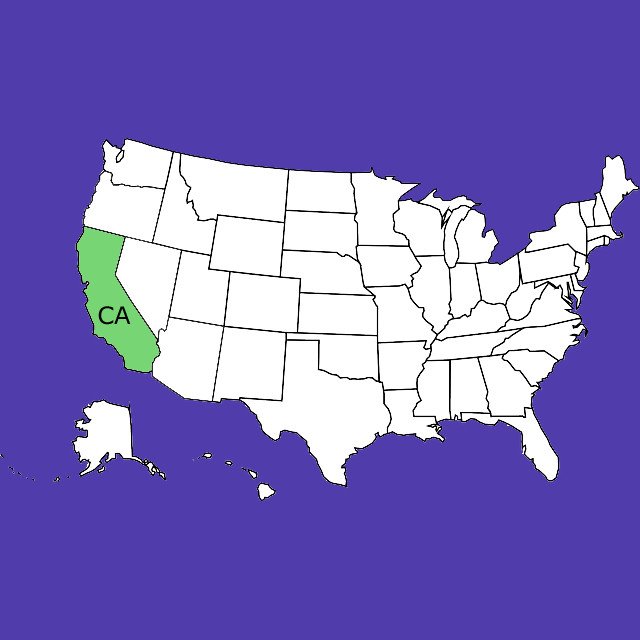Authored By: Rimon P.C. partner Justin Keller and associate Alexandra Brown
In 1716, English playwright Christopher Bullock first inked the sentiment; Ben Franklin later paraphrased it; and to this day, over 300 years later, it still rings true: “Tis impossible to be sure of anything but Death and Taxes.” But what happens when death is intertwined and arguably begot by taxes?
In California, lawfully compliant cannabis companies are facing death by taxes. California’s Governor, legislative assembly, and taxing authority are all taking steps – though somewhat contradictory steps – in dealing with the issues. In the meantime, cannabis companies are facing a multi-colored tempest: Shareholders in the red; staff (from C-suite to trimmers) getting pink slips; while banking and the declining stock market make it increasingly difficult to get access to green.
The California Department of Tax and Fee Administration (CDTFA), must have been listening to The Beatles Revolver album on repeat while raising the cultivation tax by 40 cents per ounce (i.e., $6.40 per pound) and excise tax an additional 3% of wholesale, when the prior rates were already unsustainable. These actions bring to mind the song “Taxman”:
Let me tell you how it will be, there’s one for you, nineteen for me . . .
Should five percent appear too small, be thankful I don’t take it all . . .
cause I’m the taxman.
The Taxman in this scenario, the CDTFA, may be viewed by the cannabis industry as unrelenting, but unfortunately, its hands are tied when it comes to raising (or the ability to lower) tax rates. California cannabis tax law dictates that every six months the CDTFA is required to readjust the excise tax based on actual sales data from the previous six months and readjust the cultivation tax based on inflation. According to the CDTFA tax guide, it determined the increased excise tax rate after examining all transactions on the state’s track and trace system (roughly over 200,000 individual transactions) and applying an objective formula to calculate the average market price of cannabis products. Under California cannabis tax law, there is not any room for the CDTFA to take into account the effect that increased tax rates have on the proliferation of the illicit market, as this is a role expressly reserved for the Legislative Analyst’s Office.
Nonetheless, the CDTFA’s raise of the cultivation tax and excise tax compounded with the draconian effects of Internal Revenue Code Section 280E and the fact that many local governments view cannabis companies within their respective borders as an opportunity for the municipality to collect tax revenue windfalls, has created a reality where profits are scarce for legal cannabis companies in California after state, local, and federal taxes. These problems are exacerbated when these companies’ competitors on the black market are typically paying no tax (or any other regulatory cost) allowing for much more robust margins.
Luckily, it seems the state legislature has heard the cries for rescue from the cannabis industry and has responded with introducing Assembly Bill 1948 which would eliminate cultivation taxes and lower the state excise tax from 15% to 11% until July 1, 2023. Rob Bonta, a co-sponsor of AB 1948, understanding the necessity of relief for the cannabis industry told LA Weekly, “I was pleased to see the [Legislative Analyst’s Office report] recommend[ed] eliminating the cultivation tax as we call for in AB 1948. We must lower and simplify the taxes on cannabis if the regulated cannabis industry in California is to survive, let alone thrive.”
Unfortunately, cannabis tax-related bills like AB 1948 are difficult to pass, as the bill must be approved by two-thirds of the state assembly and two-thirds of state senate. In fact, other bills addressing cannabis tax rate reduction have been introduced every year for the past three years with each one failing. For each of these prior bills, Governor Gavin Newsom publicly stated that he felt it was too soon into legalization to make changes to the law.
However, in his 2020–21 budget proposal released on January 10, 2020, Governor Newsom may have signaled that he is finally open to addressing cannabis tax rates. While the main focus of the budget proposal is the consolidation of the three state regulatory agencies into one agency and streamlining the tax collection process, the proposal also notably states, “[t]he Administration, in consultation with the industry and stakeholders, will consider other changes to the existing cannabis tax structure, include the number of taxes and tax rates . . . .”
Governor Newsom’s willingness to consider changes to the cannabis tax rates is encouraging for the cannabis industry because if AB 1948 stalls in the assembly or senate, similar to its predecessors, it may take executive action to effect change. Newsom has issued cannabis-related executive orders in the past, most recently in September, when he issued an executive order to confront the youth epidemic of vaping nicotine and illicit cannabis products in the name of health and safety of the youth.
The question is, if all else fails, will Governor Newsom enact change for the health and wellbeing of the legal cannabis industry? Or will California’s legal cannabis industry face extinction by taxes? Time will tell, but at least we can hope that California will act prudently to avoid its legal cannabis market closing like the last act of a Shakespearian tragedy.
This article was co-authored by Rimon P.C. partner Justin Keller and associate Alexandra Brown. As part of Rimon’s cannabis and hemp practice group, Justin and Alexandra advise clients on California regulatory compliance, corporate formation and governance, commercial and supply chain transactions, mergers and acquisitions, and investments and fundraising. Rimon is an international law firm with 30 offices in nine countries and four continents. You can contact us by clicking here.



 Justin Keller
Justin Keller


